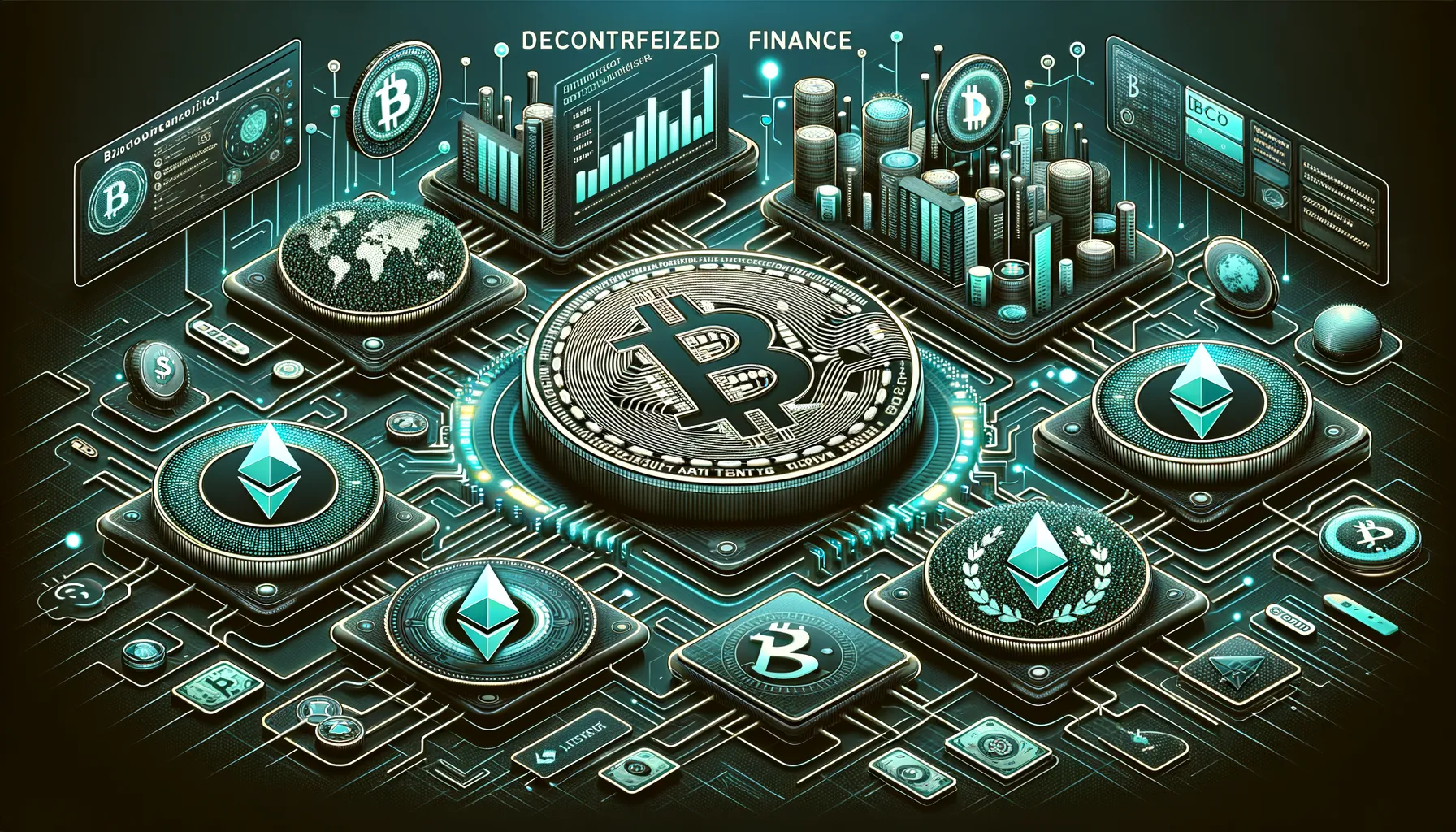Friday 1 November 2024, 12:39 PM
Understanding decentralized finance and its impact
DeFi leverages blockchain and smart contracts to provide financial services without intermediaries, increasing accessibility but facing security and regulatory issues.
Let's talk about decentralized finance
Have you ever wondered what all the buzz about decentralized finance, or DeFi, is about? It's a term that's been floating around in the finance and tech worlds, and it's making waves for a good reason. So grab a cup of coffee, and let's dive into the world of DeFi together!
What exactly is decentralized finance?
In simple terms, decentralized finance refers to a financial system that's built on blockchain technology, operating without traditional intermediaries like banks or brokers. Instead of relying on centralized institutions, DeFi uses smart contracts on blockchains to facilitate financial services. This means transactions are peer-to-peer, transparent, and accessible to anyone with an internet connection.
How does DeFi work?
At the heart of DeFi is blockchain technology, the same tech that powers cryptocurrencies like Bitcoin and Ethereum. DeFi platforms are mostly built on the Ethereum blockchain due to its ability to support smart contracts. Smart contracts are self-executing contracts with the terms directly written into code. They automatically execute transactions when predefined conditions are met, removing the need for a middleman.
Key components of DeFi
To get a better grasp, let's break down some of the main elements that make up the DeFi ecosystem.
Blockchain technology
Blockchain is like a digital ledger that's distributed across a network of computers. Every transaction is recorded on a block and linked to the previous one, creating a chain. This makes the system highly transparent and secure because altering any information would require changing every subsequent block, which is nearly impossible.
Smart contracts
These are the building blocks of DeFi. Smart contracts automatically enforce and execute agreements when certain conditions are met. Think of them as digital vending machines: you drop in a coin (or cryptocurrency), select what you want, and the machine automatically delivers it without any human intervention.
Decentralized applications (dApps)
dApps are applications that run on a blockchain network rather than a single computer. They utilize smart contracts to provide services without intermediaries. In the DeFi space, dApps can offer anything from lending and borrowing platforms to decentralized exchanges.
The perks of DeFi
So, why is everyone so excited about DeFi? Here are some of the key benefits that are driving its popularity.
Accessibility and inclusion
Traditional financial systems often exclude people due to various barriers like location, credit history, or lack of documentation. DeFi opens up financial services to anyone with internet access, promoting financial inclusion on a global scale.
Transparency
All transactions on a blockchain are transparent and can be viewed by anyone. This openness reduces the risk of corruption and fraud since activities are traceable and verifiable.
Control over assets
DeFi gives users full control over their assets. There's no need to trust a bank or institution to hold or manage your money. You hold your private keys, and you decide what to do with your funds.
The bumps in the road
As promising as DeFi is, it's not without its challenges. It's important to be aware of the potential pitfalls.
Security concerns
While blockchain technology is secure, smart contracts can have vulnerabilities. Hackers have exploited bugs in code to steal funds from DeFi platforms. It's crucial to have thorough audits and robust security measures in place.
Regulatory uncertainty
DeFi operates in a gray area when it comes to regulation. Different countries have varying approaches, and the decentralized nature of DeFi makes it hard to regulate. This uncertainty can deter mainstream adoption and investment.
Usability issues
Let's face it, interacting with DeFi platforms can be a bit daunting for newcomers. The user interfaces aren't always intuitive, and the learning curve can be steep. Improving user experience is key to attracting more users.
The impact of DeFi
Decentralized finance isn't just a trendy buzzword; it's making a real impact on the financial landscape.
Shaking up traditional finance
DeFi is challenging the traditional financial system by offering alternatives that are often more efficient and cost-effective. Services like lending, borrowing, and trading can be done directly between individuals without hefty fees or lengthy processes.
Empowering individuals
By removing intermediaries, DeFi empowers individuals to have more control over their financial lives. It democratizes access to financial services, enabling people to participate in the global economy more freely.
Driving innovation
The rise of DeFi has sparked a wave of innovation in the fintech space. New financial products and services are being developed, pushing the boundaries of what's possible and fostering a more dynamic financial ecosystem.
Looking ahead: the future of DeFi
The potential of DeFi is immense, but its future will depend on how it overcomes current challenges.
Mainstream adoption
For DeFi to truly take off, it needs to become more user-friendly. Simplifying interfaces and educating the public about DeFi can help bring more people on board.
Regulatory frameworks
Establishing clear regulations can provide stability and build trust. Collaboration between DeFi platforms and regulators can help create a framework that protects users without stifling innovation.
Technological advancements
Ongoing development in blockchain technology, like improving scalability and security, will strengthen the DeFi ecosystem. Innovations like layer-2 solutions and interoperability between blockchains can enhance functionality and user experience.
Wrapping up
Decentralized finance is an exciting development that holds the promise of revolutionizing the way we interact with financial systems. By leveraging blockchain technology, DeFi offers a more open, transparent, and inclusive financial landscape.
While there are hurdles to overcome, the impact of DeFi is already being felt, and its influence is likely to grow. Whether you're a tech enthusiast, an investor, or just curious about the future of money, keeping an eye on DeFi is definitely worth your while!
So, what are your thoughts on decentralized finance? Have you dipped your toes into the DeFi pool yet? It's an exciting time to explore and learn about this rapidly evolving space.

